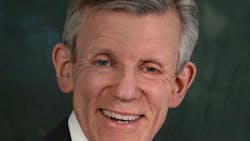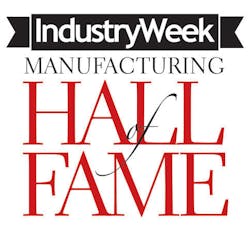2014 Hall of Fame Inductee: Nick Pinchuk
It's hard to find someone who is a bigger cheerleader of American manufacturing than Nick Pinchuk.
Whether the chairman and CEO of Snap-on Inc. is giving a formal presentation or talking off the cuff, Pinchuk's love of U.S. manufacturing is tangible. He sees industry not only as a strong career path, but also an integral component to the success of America.
"In my opinion, there is not a path to continued prosperity of America without an expansion of manufacturing," Pinchuk says.
That belief was only further strengthened by his 11-year stint in Asia as president of Carrier's Asia-Pacific air conditioning operations, where he worked with an educated and empowered workforce in Japan.
During his more than 40 years in manufacturing, Pinchuk has seen national confidence in and respect of manufacturing diminish. Yet his confidence in manufacturing, what he calls the "national calling," as the backbone of the U.S. economy has not wavered.
When I visit the factories and I speak with people on the line, they appear happier and more prosperous. The parking lots have better cars. This makes me feel good. I'm proud of the fact that people are enlisted in what we do. They believe in what we do, but they're never satisfied."
—Nick Pinchuk
"I believe manufacturing is going to become even more important in the future because we have let it lie fallow for some time," Pinchuk says.
Pinchuk was led to a career in manufacturing through his experiences as a high school football coach and as an officer in the U.S. Army.
"Those two experiences are remarkably aligned in that they taught me the power of belief" and how people can come together over a collective belief, he says.
He was inspired by the ability of a leader in those situations to galvanize others into action, to "take individual effort and weld it together" to create something bigger than the individual. That same opportunity, he found, existed in manufacturing.
Now, Pinchuk heads a $3.2 billion manufacturer of high-end tools, where he has served as CEO since 2007 and as chairman since 2009.
"When I visit the factories and I speak with people on the line, they appear happier and more prosperous. The parking lots have better cars. This makes me feel good," Pinchuk says, reflecting on his time at the head of the company. "I'm proud of the fact that people are enlisted in what we do. They believe in what we do, but they're never satisfied."
About the Author
Ginger Christ
Ginger Christ, Associate Editor
Ginger Christ is a former associate editor for EHS Today, a Penton publication.
She has covered business news for the past seven years, working at daily and weekly newspapers and magazines in Ohio, including the Dayton Business Journal and Crain's Cleveland Business.
Most recently, she covered transportation and leadership for IndustryWeek, a sister publication to EHS Today.
She holds a bachelor of arts in English and in Film Studies from the University of Pittsburgh.


